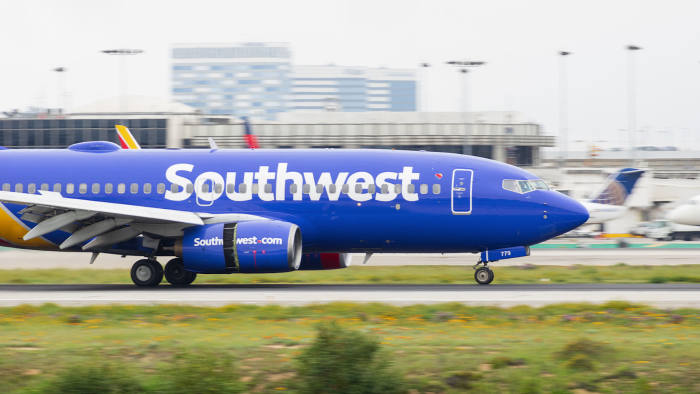
Patrick Temple-West | 17 May 2020
Like most high street retailers, UK jewellers H Samuel and Ernest Jones have been hammered by the coronavirus. Amid slumping sales, Signet, which owns the UK store chains as well as US counterpart Kay, has halved salaries and delayed handing out shares to top executives.
Meanwhile Alan Joyce, chief executive of Australian airline Qantas, will not take a salary this year, while Philip Jansen, head of BT — who has himself recovered from coronavirus — has said that half his annual salary would go to the UK’s NHS.
But fortunes are notably different at big pharmaceutical and healthcare companies that continue to pay executives millions of dollars. Boston biotech firm Moderna, which is working on a vaccine for Covid-19, paid its chief medical officer Tal Zaks a $1m retention bonus in March.
The dichotomy underscores the consequences of the pandemic for corporate leaders accustomed to multimillion-dollar pay packages. The remuneration of executives leading healthcare, biotech and life sciences businesses has mostly been maintained, while some peers in hospitality, travel and discretionary consumer products such as jewellery have seen cuts.
The sacrifice may also be limited for those executives taking pay cuts in gestures of solidarity with employees. Many companies had already awarded shares and bonuses to executives in January and February, before the pandemic set in.
In a US survey conducted from March 27 to April 7, Semler Brossy Consulting Group found that 84 per cent of businesses have taken no action on executive pay. Two-thirds of companies had already made equity grants to executives this year and 94 per cent do not plan on making changes to these awards, it reported.
Equity is usually a bigger portion of total compensation than cash salaries, says Amit Batish, a manager at Equilar, a remuneration data provider that has tracked the impact of coronavirus on executive pay.

“[Equity is] what makes executives their big bucks,” he says, adding that those remuneration packages may now be under review. For example, Equilar found that amusement park company Six Flags is determining new performance goals for bonuses that are usually paid at the beginning of a new year. With its rollercoasters parked and concerts silenced, Six Flags has cut workers’ pay by 25 per cent.
Companies that have taken government bailouts, notably in the airline industry, have been forced to slash executive pay. Budget carrier Southwest Airlines has indicated that it will limit executive pay until March 2022. Businesses that used the US government’s pay cheque protection programme are unable to cut pay for workers making under $100,000. MannKind Corporation, a California-based biopharmaceutical company that received government aid, has said it will reduce salaries only for employees making more than $100,000.
 Other company executives have responded with their own pay cuts to avoid embarrassing headlines.
Other company executives have responded with their own pay cuts to avoid embarrassing headlines.
“There is a big reputational risk if you are furloughing people or making drastic salary cuts to rank-and-file workers and the executives are getting big pay packages,” points out Alexandra Denniston, a partner at law firm Goodwin Procter in Boston.
Reputational worry over pay stems back to the 2008-2009 financial crisis, when insurer AIG paid $165m in bonuses to executives after losses that forced a $170bn taxpayer-funded rescue. The bonuses infuriated members of Congress and the House of Representatives in March 2009 raced to pass a bill to impose a 90 per cent tax on bonuses to employees of bailed-out businesses whose gross income exceeded $250,000.
The legislation ultimately failed to advance but the 2010 Dodd-Frank Act Wall Street reforms imposed several executive pay requirements. These included a mandate that companies disclose the ratio between a chief executive’s pay and the median annual total compensation for all employees.
Some business leaders are acting now in an attempt to ward off bad publicity. Chief executives at companies that may need to reduce headcount or employees’ pay, “are going to the board or the compensation committee saying ‘cut my pay’,” says Lynda Galligan, a Silicon Valley-based partner at Goodwin Procter.
But those cuts are in pay. Executives are not handing back bonuses paid earlier this year for their work in 2019, says Marc Hodak, a partner at Farient Advisors, an executive remuneration consulting firm.
“No, we are not seeing many executives — I don’t know of any — saying ‘I got this award in February I am going to give back some of it now’. That is not happening,” he adds.
The next pay decision for companies is what to do about bonuses for 2020. Equity bonuses scheduled to be paid in early 2021 are still in flux. Most companies “are waiting to see what happens. A lot of people are bracing themselves for bonuses being pretty poor or possibly nonexistent” for early 2021, says Mr Hodak. “A lot of the boards are saying ‘let’s just see what it looks like’.”
***** ***** ***** ***** *****
Source: The Financial Times
https://www.ft.com/content/b8a29cfc-8ac1-11ea-a109-483c62d17528
